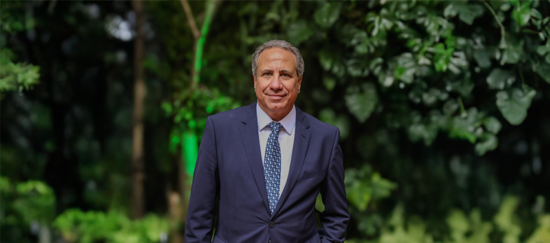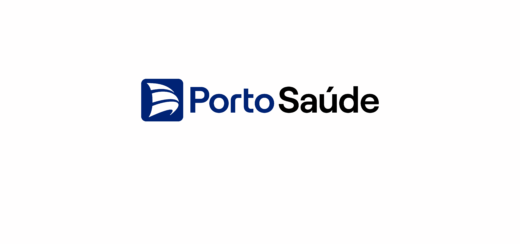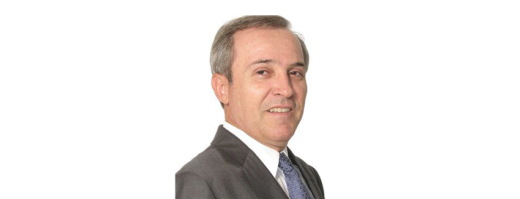Players bet in business advancements upon a balanced economic scenario in 2020
According to the latest statistics about the performance of the brazilian insurance market, the sector shows signals of renewed strength. Following the previous years, the top leaders keep optimistic about the evolution in the figures. According to the latest Conjuncture Letter, elaborated in concert by Sindseg-SP and Sincor-SP, a growth about 10% is expected in 2020. Including the health products, the index rises to 11%.
The National Confederation of Insurers also highlights the slights expansion of the market in the latest edition of Conjuntura CNseg. According to the publication, in 2018, the sector closed with the collection of R$ 245.6 billion in premiums. In 2019, the annual revenue showed an advance of 12.1% – considered the biggest percentage since 2012, totaling 270.1 billion, without counting the supplementary health and DPVAT performance. Discounted the inflation, the growth was of 8.1%.
“This superlative performance proves that the insurance activity, far from being obsolete, responds positively, and with speed, to economic and social stimulus, although timid”, remarks the president of CNseg, Marcio Coriolano. In the Carta de Conjuntura editor’s message, the chairmen of both unions, Rivaldo Leite and Alexandre Camillo, asserted that “in 2020, is expected a GDP 2.5% growth. Unemployment rate, government reforms and measures that incentive development and job creation are the main goals for this year, to assure a bigger and more sustainable growth in Brazil”.
The market also sees 2020 as an auspicious year, looking from events seem as “landmarks” for the activity. The approval of the Pensions Reform and the Economic Liberty Law (Law 13.874/2019) are some important examples. In the first case, the reform can intensify the debate about people’s awareness to prevent the risks to which they are exposed. In regard of the 13.874 Law, specialists bet in more immediate results, such as the incentive to the creation of new products and technologies and the foment to the development of insurtechs.
Generally, the players trust in a balanced macroeconomy scenario, with the inflation under control and fiscal anchorage. The increment in personal income and job enlargement would be essential leverage for the sector. The demand for insurance should follow its ascending course equally for another aspect: the investments and industrial production resumption – phenomena that follow the trail of the GDP increase – makes room to P&C risks coverage expansion.
Latin America
There are other numbers, however, that attest fragility situations in business on the latin-american continent. Political turmoil in the region in the last few years impacted the countries’ economies. According to the report “The Latin-American Insurance Market”, produced by the Studies Service of Mapfre and published at the end of 2019 by the Fundación Mapfre, revealed that, in 2018, the volume of premiums in Latin America added US$ 150.6 billion, a decrease of 5.5% facing the growth of 8.6% in 2017.
Mapfre’s report also pointed, in 2018, the volume of premiums in the Brazilian market had a nominal decrease of 0.9% and real of 4.4%, reaching a little more than R$ 210 billion or US$ 57.56 billion. “As well as in neighboring countries, Brazil was also affected by these events, so much for internal, as well as the movements of countries that are commercial partners in the region”, comments Fernando Pérez-Serrabona, CEO’s Mapfre in Brazil.
Although this scenario may bring some degree of concern, Pérez-Serrabona remarks that the country was able to advance with the approval of important reforms, such as the labor and pensions. The panorama points to the continuity of measures that can help de-bureaucratize the business activity. The executive reinforces the effective possibility of resumption of the consumers purchasing power. The fact, naturally, will bring benefits to the sector as a whole, affected by what he names “families budget contingency last year”.
Global trends
The positive outlook for the economy in 2020 is unanimous facing the sectorial analysis of large companies that perform in several fields. “It is expected that several global trends that are affecting Brazil, together with a more optimistic economic outlook (expected GDP growth at 2%) shall contribute to a solid double-digit growth”, believes Newton Queiroz, CEO of Argo Brasil. If that’s correct, he predicts an improvement in the Brazilian ranking among the world’s insurance market, climbing from the 14th place to 10th. Queiroz mentions as fundamental trends in 2020 innovation, social awareness, financial investments, international capital and personal expend rise.
In the view of Argo Brasil’s CEO, “the investment in critical economic areas will be the main pusher of the strong simultaneous growth of the insurance market”. The executive quotes percentages like the 7.8% increase in oil and gas production this year, while iron ore shall rise by up to 9.1%. “Beyond that, it’s probable that agricultural production grows by 3.6%, overall due to the increase in soybean and protein production, while construction predicts an increase of 4.9% in stock of new property aimed at residential real estate”, he adds.
Country side insurance without doubt can pull promising business, in the view of Pérez-Serrabona. He remembers that the Federal government made available, in 2019, R$ 440 million for insurance grants, whose value was used in its entirety. To the executive, such feat is a demonstration of the potential of advancement in crops protection, even because the quantity of insured production is still timid in Brazil.
Potential modalities
The Global Index of Potential Insurance (GIP), also made by the Studies Services of Mapfre, denote that, in a medium and long terms, among the 96 nations evaluated, Brazil is among the top ten countries with more chance of expanding the life and non-life products commercialization. “This proves that the brazilian insurance market has potential of growth in different segments beginning with the economy improvement and resumption of the citizens’ purchasing power”, reiterates the CEO Fernando Pérez-Serrabona. The increase in the consumers capacity to acquire goods and services and the dissemination of the financial education culture are factors that pull insurance demand, away until now, such as residential and vehicles, for example. Pérez-Serrabona adds: “The protections for personal risks (that include life, personal accidents, credit, among other modalities), already showed a relevant growth of 16.9% in the most recent Private Pensions and Life National Federation (Fenaprevi) survey. Other opportunities can also show up in a favorable scenario.
Newton Queiroz adds two new niches: supplementary health and guarantee. “However, now, we are facing a new period of new opportunities, thanks, mainly, to the development of new technologies. If I can highlight some products, I would bet on transport, engineering, property, general responsibility, among others”, enumerates the Argo Brasil CEO. At the medium and long run, Queiroz forecasts the occurrence of good businesses in two distinct areas. The first refers to the implementation of the right products, accompanied by a period of mature commercialization, in with only a few well-prepared players can benefit, “given the high initial investment and the long-term nature of returns”.
The second opportunity would consist in the clearing of new markets. Those can be a result of new regulations related to data privacy and risks “still not well comprehended”, like cyber. Finally, Newton Queiroz warns: “There’s a technological environment in rapid evolution. Changes, that previously took a decade, can suddenly advance in less than 12 months”. Summing up, 2020 promises to be a year full of surprises.
Rather a threat, now a reality
Economists and financial analysts fear – and some are certain – that the epidemic of coronavirus can compromise the Brazilian market growth. The market’s main players, however, ask for caution. CEO of Allianz, Oliver Bäte, in a recent interview for Bloomberg Television, stated that there’s an exaggeration about the impact of Covid-19 in the global economy. According to him, it’s a “very strong flu”. He recognizes, although, that the economic activity can experience a contraction in short term and the impact on global GDP will not be definitive. But there’s a paralysis in the countries most affected by the disease, such as Italy.
Fluctuations in market figures are evident because the coronavirus is the biggest enemy to business health. Sectors such as the manufacturing industry are hampered by the spread of the disease on all continents. Businessmen in the machinery and equipment industry are switching from China to another trading partner in the import of inputs. In insurance segment, senior executives of companies operating in Brazil, which have a situation that requires extreme care and attention, effects (falls in indexes on the Stock Exchange) are obstacles to the advancement of the sale of products and services.
You may be interested

Safe2Go participará como expositora e apoiadora do ITC Vegas
Publicação - 15 de setembro de 2025A Safe2Go, plataforma White label líder em soluções digitais para o setor de seguros, anuncia sua participação na edição 2025 do ITC Vegas, o maior evento do…

Por que oferecer Plano Odontológico para minha Empresa?
Publicação - 15 de setembro de 2025Oferecer Plano Odontológico aos Colaboradores é apenas mais um custo para as Empresas ou representa um real diferencial competitivo? Essa é uma dúvida comum entre Gestores e…

Allianz lança Super App com novas funcionalidades
Publicação - 15 de setembro de 2025Com a recente atualização do app Allianz Cliente, que agora conta com uma interface mais moderna e intuitiva, a Allianz Seguros deu mais um passo na sua estratégia digital…
Mais desta categoria


















